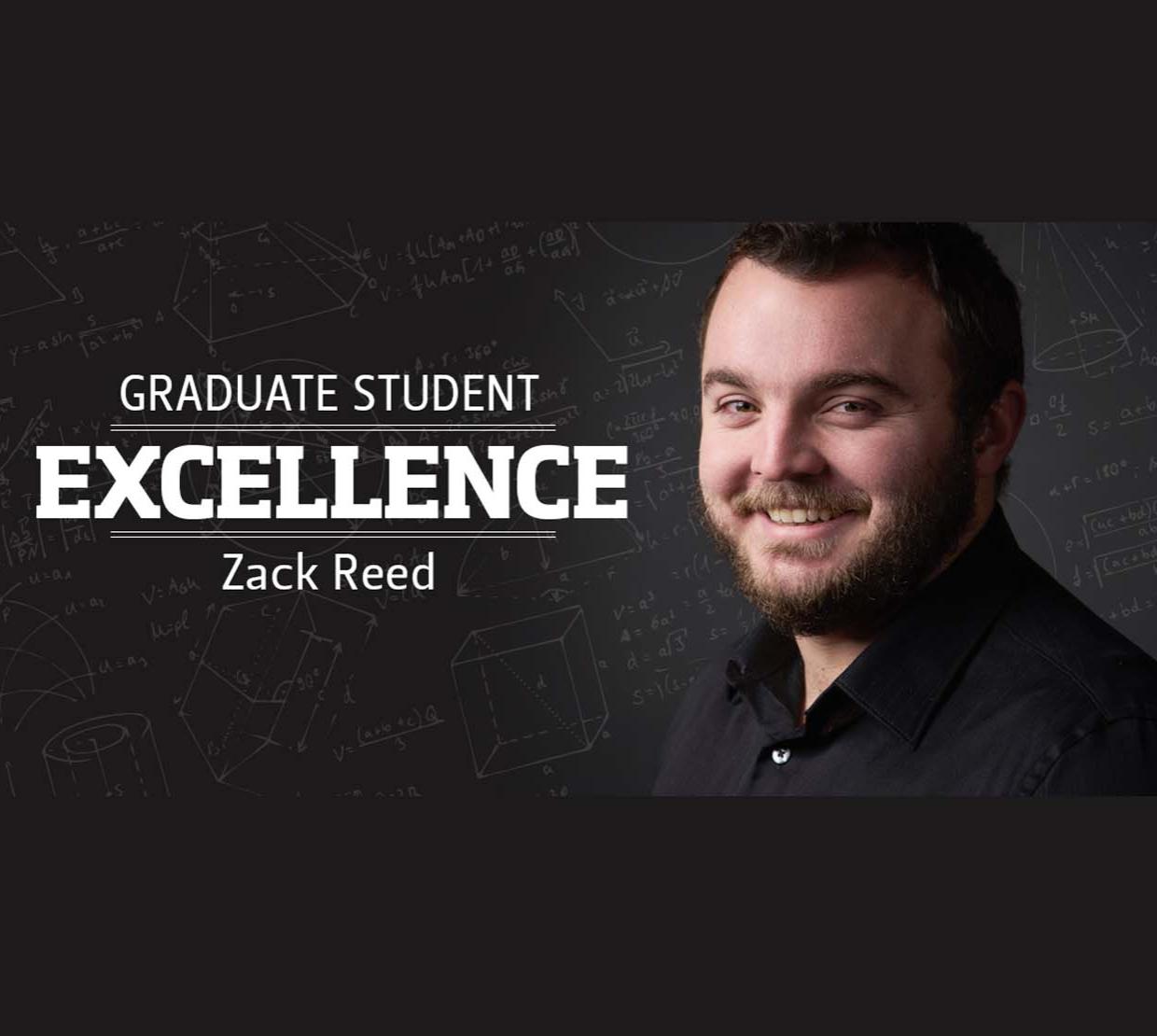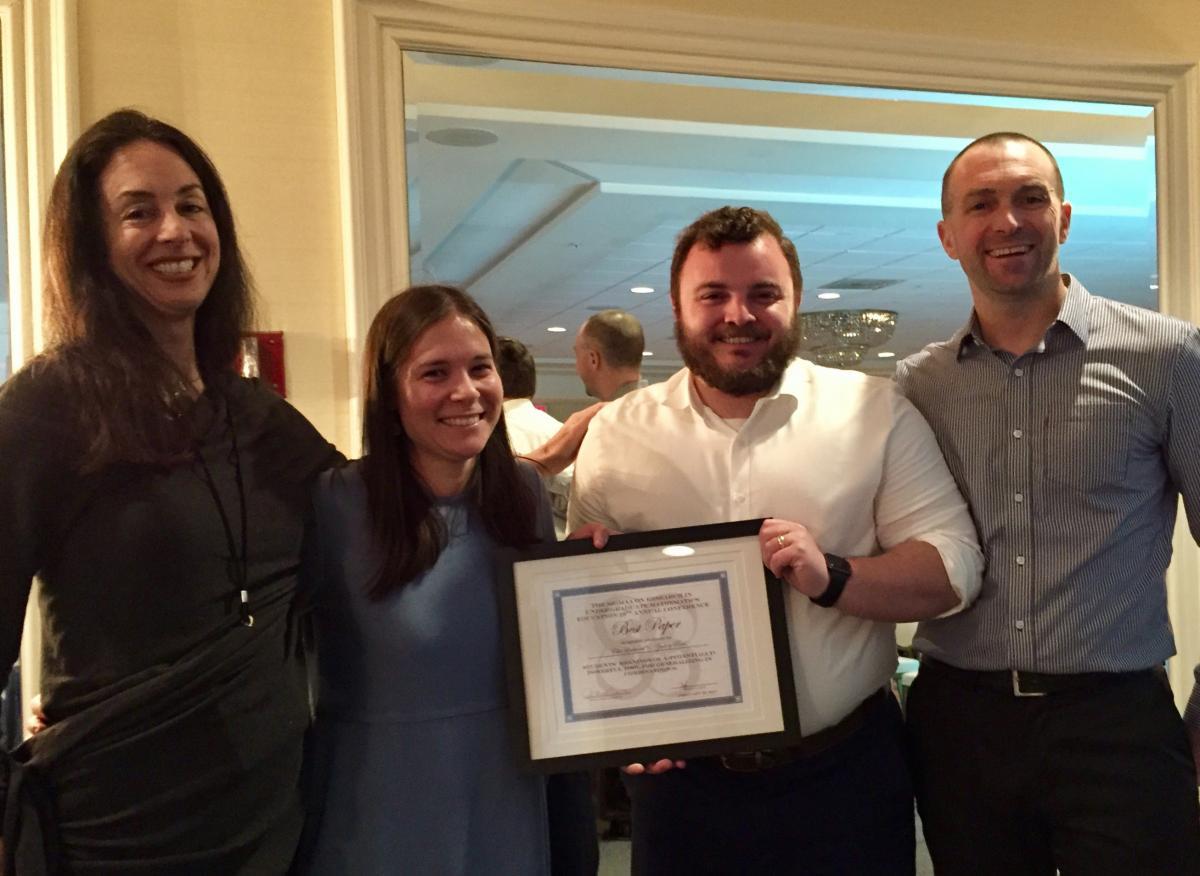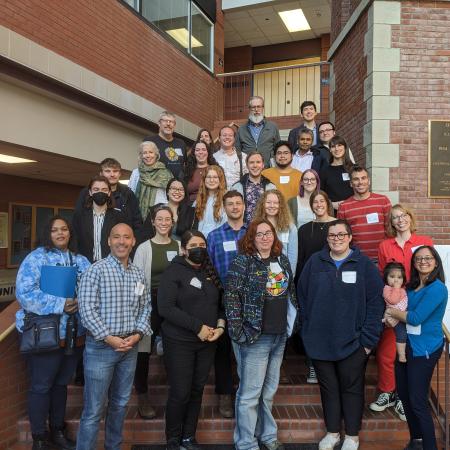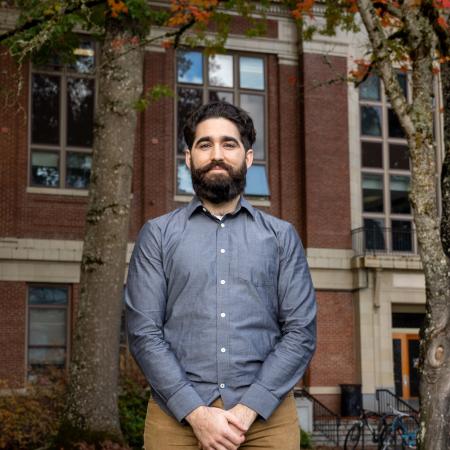Zack Reed came to OSU in 2013 from Pepperdine University, where he graduated magna cum laude. Since then, he has distinguished himself as an active student thriving in coursework, teaching, and research.
Zack’s research path began in analysis of partial differential equations under the direction of Prof. Elaine Cozzi. His Master’s expository paper covered analogies between the two-dimensional quasi-geostrophic equation (QGE) and the three-dimensional incompressible Euler equation. Since writing this paper – and, according to Prof. Cozzi, “vastly exceeding expectations” – Zack has continued to collaborate with her. Currently they are working on problems relating to the aggregation equation, a differential equation with similarities to equations arising in fluid mechanics.
Exposure to mathematics education research also piqued his interest early on, and his goals became clearer as he worked on Prof. Elise Lockwood’s NSF GAMMA (Generalization Among Multiple Mathematical Areas) grant as a GRA in 2014-15. As Zack tried to decide between real analysis or math education research for his long-term career goals, he realized he found student understanding most fascinating. He credits his work ethic to continuous, engaging research questions in the GAMMA project, and his focus to finding direction early in his graduate career: “I think deciding on a direction for my dissertation early really grounded my research experiences with a goal and purpose, which made it easier to focus and efficiently take steps towards my dissertation.” Any graduate student who has an opportunity to be a GRA, he says, should certainly take it.
Zack found merging his real analysis expertise with his interest in student cognition could yield results in his dissertation. He says of the integration: “Because I am intimately familiar with the vast applications of real analysis in mathematics, I know how important it is for students to understand certain nuances and strategies that come with understanding the field.” His dissertation project involves “very in-depth analysis of student mathematical activity that results in the creation of new theoretical perspectives.” He enjoys observing how students do mathematics – often in ways he never would – and seeing familiar concepts through fresh perspectives: “It's amazing how many times you can look at a 30 second video clip of a student's work and keep developing new perspectives and results from the mathematical activity.” His PhD advisor, Prof. Lockwood, believes Zack’s dissertation “will inform our understanding of student reasoning about topics in real analysis, and it has the potential ultimately to improve the teaching and learning of analysis.”
It’s also providing him with a lot of material for presentations and publications. To date, Zack has two journal publications (with another submitted) and a monograph chapter, 4 papers in refereed conference proceedings, and has presented two posters. He has also been a part of 9 presentations, including 3 at the Joint Mathematics Meetings.
Zack has been recognized by several groups for his extraordinary accomplishments: he received a best paper award (with Prof. Lockwood) at the 2017 Conference on RUME, a 2016 Graduate School Travel Award, and the department’s 2016-17 Graduate Student Excellence Award. But his graduate accomplishments are not finished yet. He plans to finish conducting interviews and gathering data from students this year, and he expects this will lead more results to work into his dissertation and present at conferences next year.





